In today's data-driven era, individuals have come to anticipate personalized experiences that cater specifically to their needs and preferences.
This expectation has not only influenced consumer interactions but has also significantly impacted the realm of B2B sales.
Just like consumers, B2B buyers now seek and expect personalized communication that aligns with their unique requirements.
As a result, advertisers and marketers have adapted their strategies to ensure timely and tailored responses to meet the demands of B2B prospects.
Let’s delve deeper into this issue.
B2B And Personalization
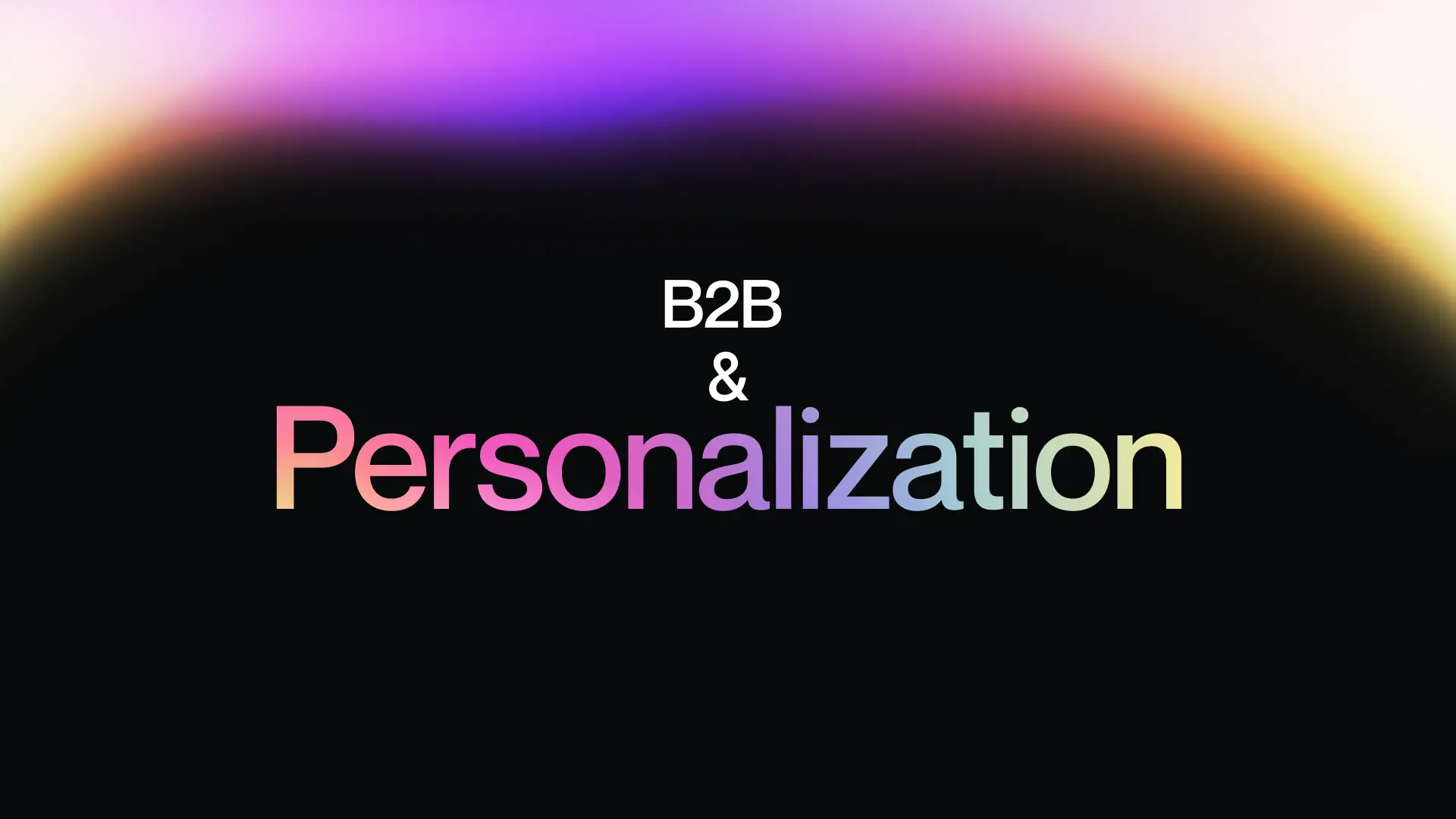
B2B personalization entails customizing your advertising, offers, and communication approaches to suit the individual needs of each B2B customer.
It involves employing intelligent targeting and gaining a deeper understanding of your audience to provide quicker, more relevant, and anticipated experiences for business customers.
By tailoring your interactions, you can deliver precisely what they need, when they need it, fostering stronger connections and meeting their expectations.
The Benefits of Personalization in B2B Marketing
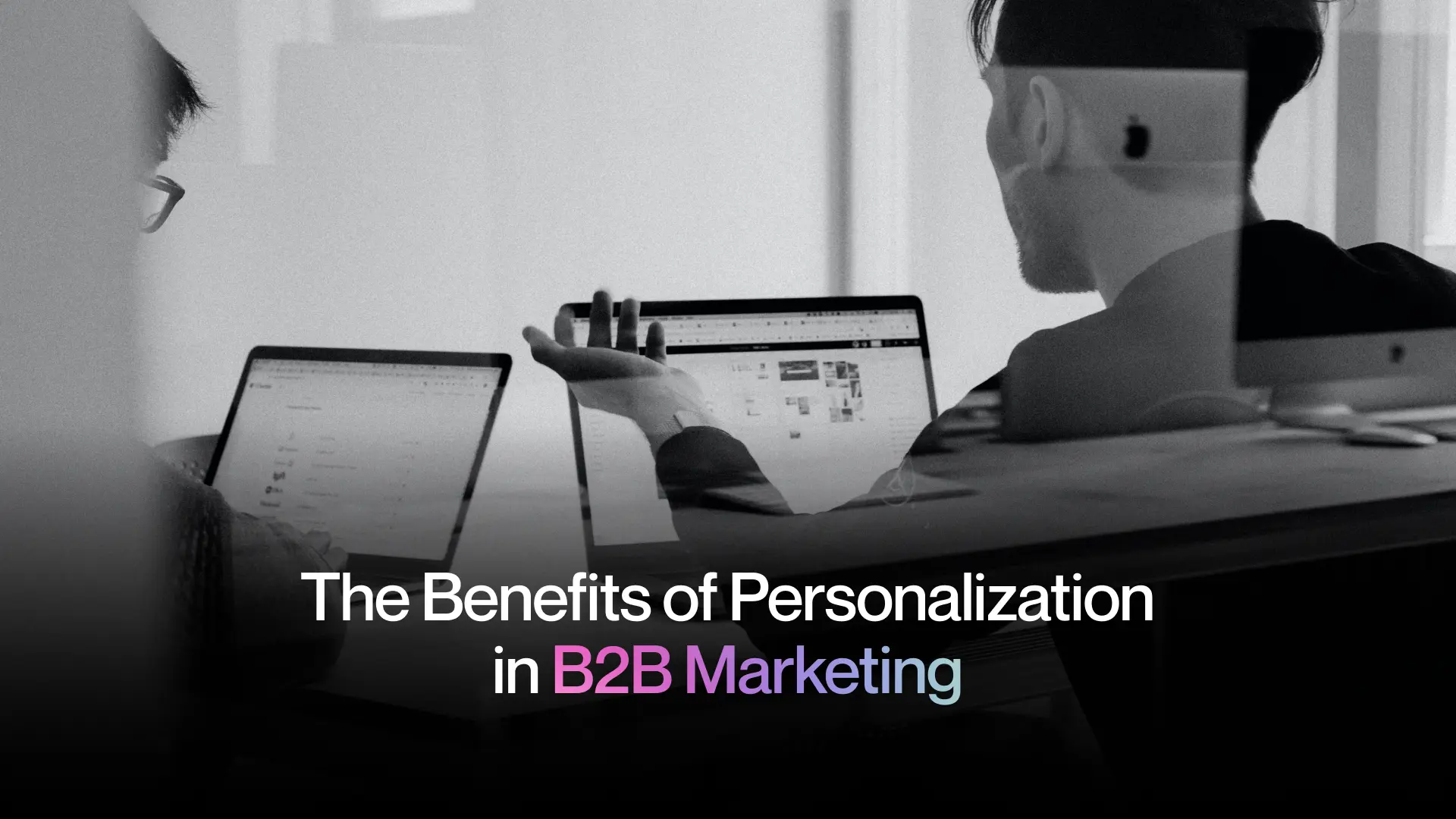
Personalization in B2B marketing brings a plethora of advantages that can significantly impact your business success:
- Enhanced customer experience and engagement: By tailoring your marketing efforts to individual B2B customers, you create a more personalized and relevant experience. This fosters stronger connections, improves satisfaction levels, and boosts engagement, ultimately increasing brand loyalty.
- Improved lead generation and conversion rates: Personalization enables you to target prospects with tailored messages and offers that resonate with their needs and pain points. This targeted approach enhances lead generation, as prospects are more likely to respond positively to personalized content.
- Strengthened customer loyalty and retention: When B2B customers receive personalized attention and experiences, they feel valued and understood. This builds trust and loyalty, increasing the likelihood of repeat business and long-term relationships.
- Increased customer lifetime value (CLV): By leveraging personalization, you can drive customer loyalty and satisfaction, leading to higher CLV. Repeat purchases, cross-selling, and upselling opportunities are more likely to arise when you understand your customers' preferences and deliver tailored recommendations and offers. This extended customer lifetime value contributes to the overall growth and profitability of your business.
B2B Personalization Strategies to Pay Attention To
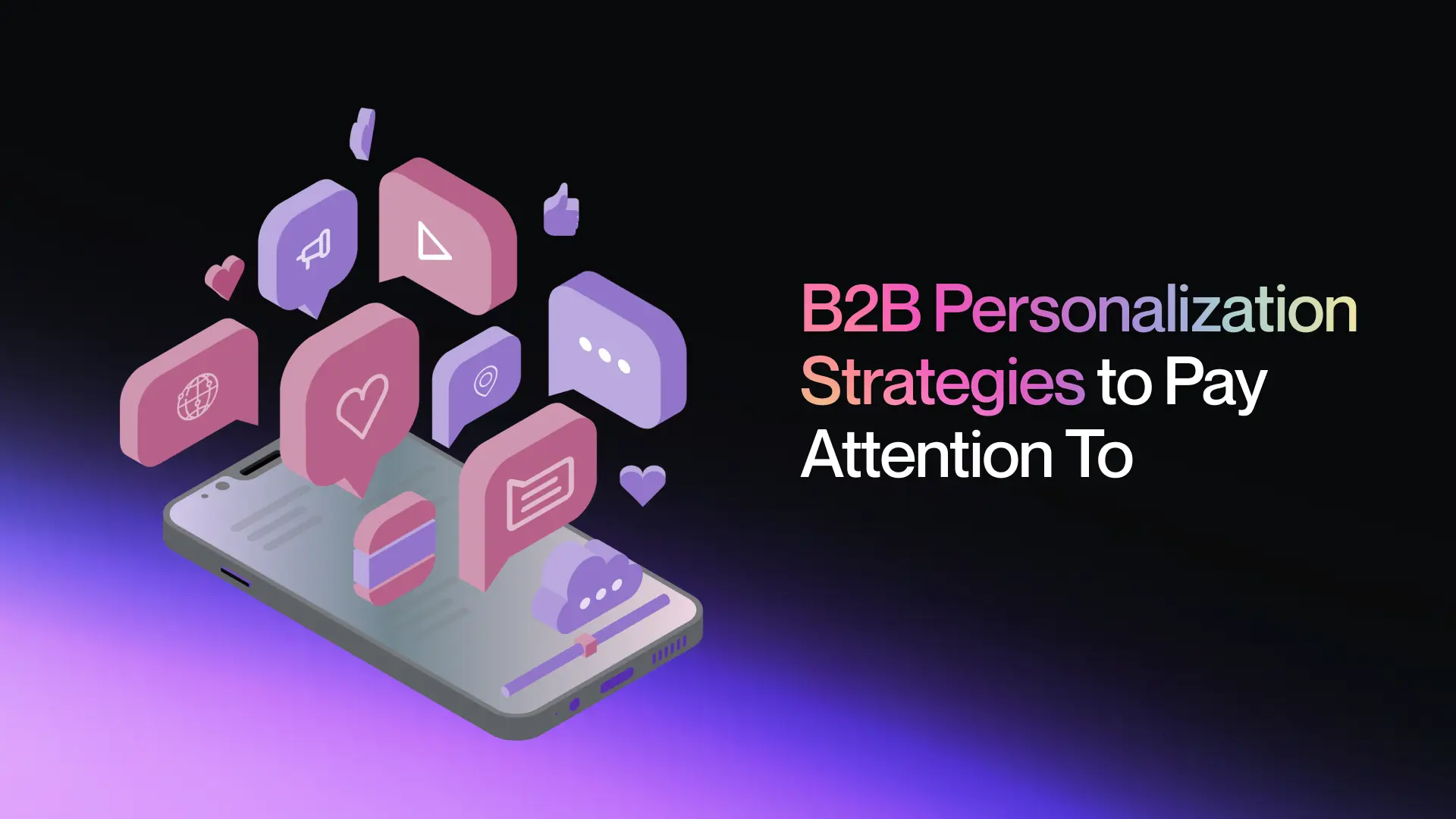
Implementing personalization in B2B marketing requires thoughtful strategies and the right tools and technologies.
Let’s take a look:
- Collecting and utilizing data and analytics for segmentation: Leverage data and analytics to gain insights into your B2B customers, segmenting them based on various characteristics such as industry, Company size, or purchasing behavior. This segmentation enables you to create targeted marketing campaigns that address the specific needs and pain points of each segment.
- Tailoring content and messaging: Craft personalized content that speaks directly to your B2B customers. Customize your messaging to resonate with their challenges, goals, and interests. This includes personalized emails, website content, Success Missions, and other marketing collateral. Tailoring your content enhances engagement and builds stronger connections with your audience.
- Personalizing the buyer's journey: Map out the buyer's journey and identify touchpoints where personalization can make a difference. Tailor your communication and content at each stage to guide prospects smoothly through the buying process. Personalized recommendations, relevant content suggestions, and targeted offers can greatly influence their decision-making.
- Leveraging automation and AI technologies: Take advantage of automation tools and AI technologies to scale your personalization efforts. These tools can assist in collecting and analyzing customer data, providing real-time insights, and enabling personalized interactions at scale. Automated email campaigns, chatbots, and recommendation engines are examples of AI-powered tools that can enhance personalization in B2B marketing.
B2B Personalization Is Bigger Than You Think
B2B personalization extends beyond merely providing a pleasant website experience. It revolves around meeting the unique needs of every individual customer across various touchpoints, including your website, social media platforms, and email newsletters.
That is why B2B personalization is complex and important.
Keep in mind that in essence, B2B personalization aims to create a distinctive and seamless cross-channel experience for each member of your audience.
Research indicates that around 73% of B2B executives firmly believe that personalizing marketing efforts is essential due to the increased expectations of their audience. Nearly 90% of online businesses already invest in personalization to some degree.
When executed effectively, advanced personalization strategies can yield significant returns, with companies reporting returns of nearly $20 for every $1 spent.
Personalization for B2B Marketing: What Should We Expect in the Future?
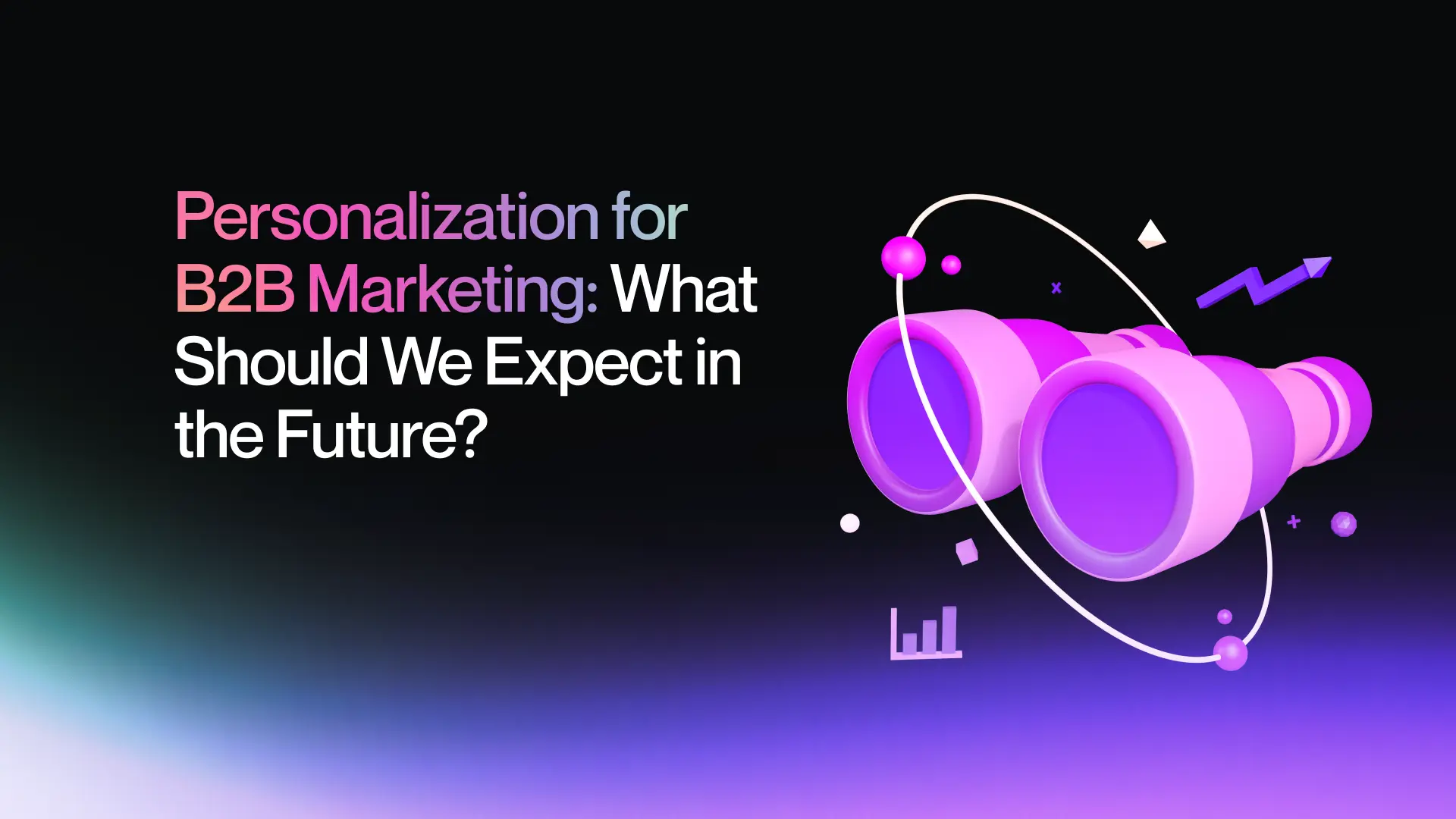
As B2B marketing continues to advance, several emerging technologies are poised to shape the future of personalization.
Innovations such as augmented reality, virtual reality, chatbots, and voice assistants are becoming increasingly prominent.
These technologies offer exciting opportunities to enhance the personalization experience by providing interactive and immersive engagements with B2B customers.
On top of that, we can’t neglect the power of AI and ML.
Artificial intelligence (AI) and machine learning (ML) are playing a transformative role in B2B marketing personalization.
These technologies enable businesses to analyze vast amounts of data, uncover meaningful insights, and automate personalized interactions with customers.
AI-powered chatbots, recommendation engines, and predictive analytics are just a few examples of how AI and ML are revolutionizing personalization efforts.
Looking ahead, personalization will continue to be a driving force in B2B marketing. As customer expectations rise, businesses will need to embrace personalized strategies to stay competitive.
Hyper-personalization, where individualized experiences are taken to the next level, will become increasingly prevalent.
Moreover, the fusion of personalization with data privacy and ethical considerations will be critical to building trust and maintaining customer relationships.
Final Thoughts
Personalization has emerged as a cornerstone of successful B2B marketing. It goes beyond mere customization, allowing businesses to deliver tailored experiences that engage customers, drive conversions, and foster long-term loyalty.
By understanding the unique needs and preferences of individual customers, companies can forge stronger connections and stand out in a crowded marketplace.
So, take what you can from our mini-guide and do your best to adopt personalization when crafting your own B2B marketing efforts and strategies.
Remember, the future of B2B marketing lies in personalized approaches that cater to the ever-increasing demands of customers, driving growth and establishing meaningful connections that endure.
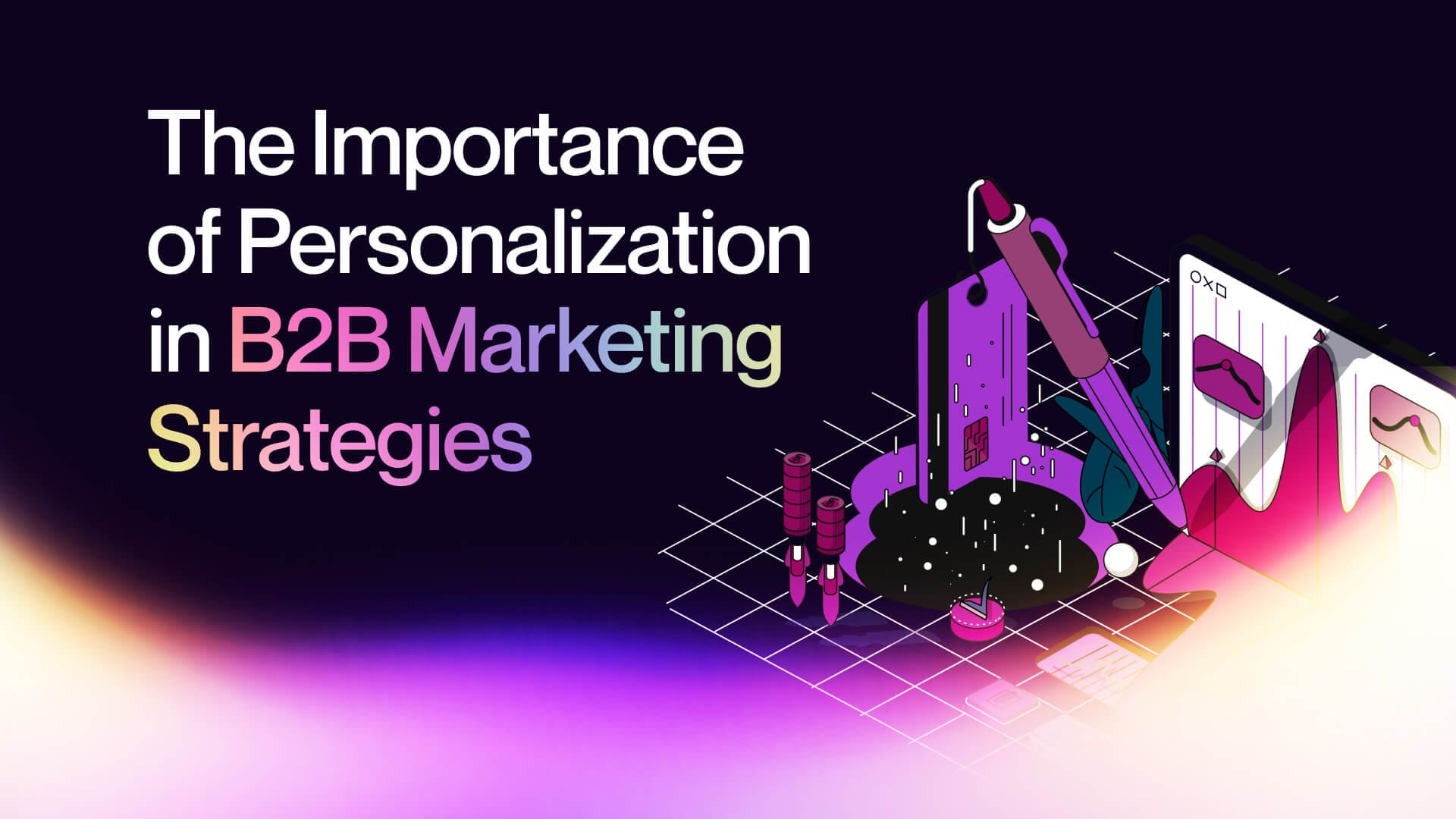


%20(convert.io).jpg)